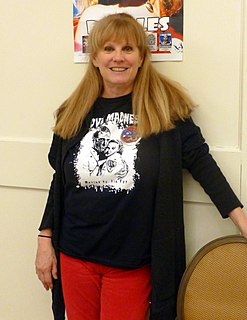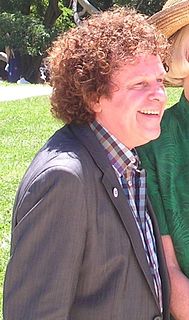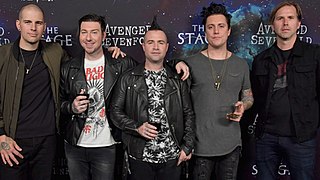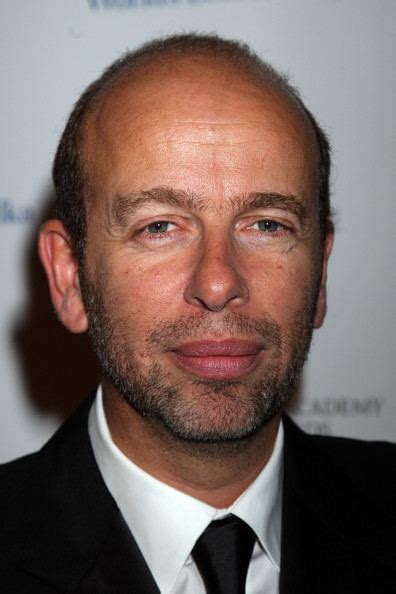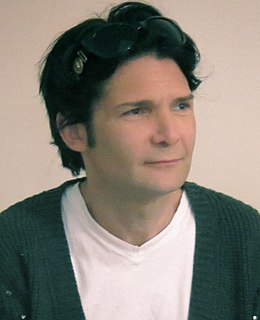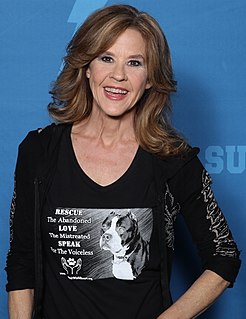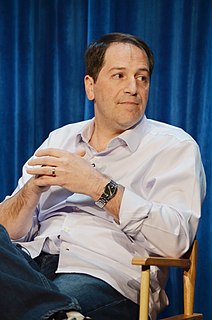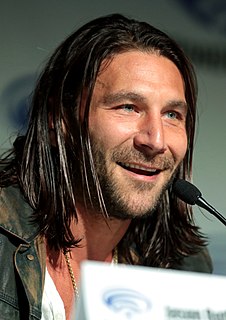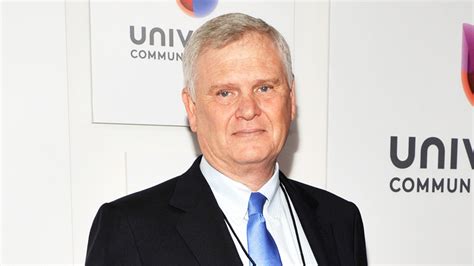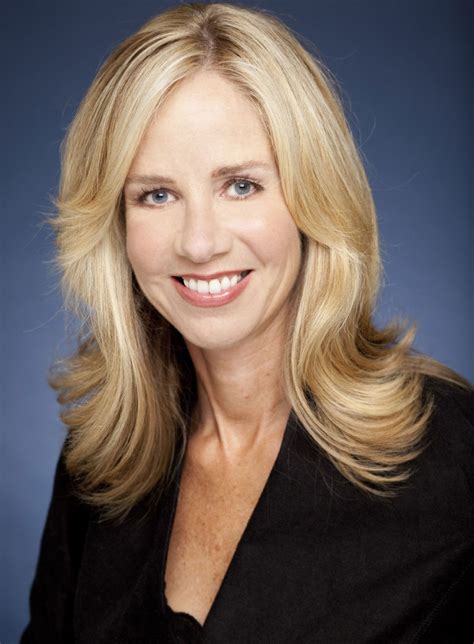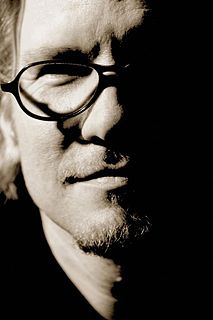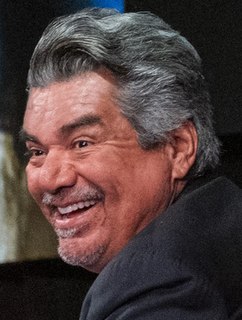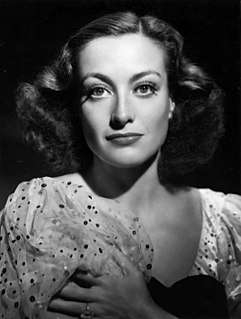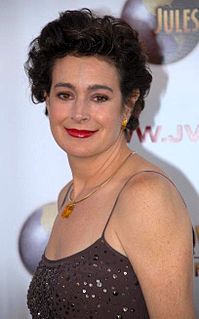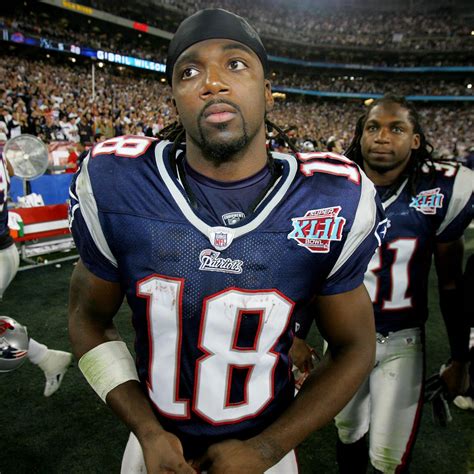Top 220 Warner Quotes & Sayings - Page 4
Explore popular Warner quotes.
Last updated on April 21, 2025.
Four times a year, Warner Bros. Records send out their little statements, and they're like eight pages with all the countries from all over the world, and I end up getting a check for $48. But I think, obviously, the Ramones make some good money, because they must get a writer's share from the Rock 'N' Roll High School.
To be honest, we spent many years at Warner, and in the very beginning, there was a very passionate team that worked alongside us on a daily basis. Every year that went by, we would lose just about every single person that worked directly with us, to the point that I honestly couldn't have picked up a phone and gotten one person who knew me.
The pay window will be: you can choose how and when you see, whether you see it on Comcast or Warner's Cable delivery system or Sky in the UK or you can buy it through Apple, or you might even buy it directly from the studio's site. Who knows? But that will be it. You'll go to the cinema and you'll find a way of digitally interacting with the piece; you'll either buy it or rent it or whatever.
I'm a big kid, I'm a kid at heart, so I still love the classic family films, such as the great Warner Bros film 'Willy Wonka and the Chocolate Factory' - not the remake, but the original. It's still one of the best movies, hands down, ever made, and of course that goes back to the ingenuity of the characters and the storyline.
Warner Brothers had to hire [a stunt double] and no one thought a child could do this. Billy Friedkin came to me before we were filming [The Exorcist] and said "if you do not do all of this film, the film will be a joke." It's why they stripped the makeup down to the bare minimum, a piece on my chin, piece across my mouth that disfigured my mouth. You have scars here. Take away my eyebrows. It was my real hair. Shampoo was put in it that dried.
I don't think so much about verbal comedy. I always think about visual comedy. I was raised watching silents, and I'm always thinking about how to make cinema, not good talking - although I want good talking. I'm much more interested in framing, composition, and orchestration of bodies in space, and so forth. My goal is always what Chuck Jones wanted his Warner Brothers cartoons to be, which was if you turn down the sound, you could still tell what's going on. I think if you watch most of my films with the sound off, you could still tell what's going on.
I would love to see any one of those people again [Erik Palladino, Paul Schulze, Ian Reed Kesler, even Malcolm-Jamal Warner, Carly Pope,], and I definitely suspect we will see at least one or more of them again, but other than, obviously, Carly Pope, because we leave off anticipating seeing her again [in Suits], of the other ones, we have to figure out a way to make them come back and we haven't yet.
I played at Sony, Warner Bros., Universal, Big Machine, Capitol... after I played every one of those places, everyone offered me a record deal. I was just like, 'Who am I? Why do I even deserve this?' There are people busting their butts on Broadway doing this hardcore, playing three hours a night for tips, and I didn't even ask for it.
I was influenced by Ray Harryhausen and Lotte Reiniger, with her twitchy, cutout animation, which I happened to see at a very young age, but also by the Warner Bros. cartoons, 'Tom and Jerry,' and of course Disney. And also by Fellini's 'Giulietta of the Spirits' and Kurosawa's 'Ran.' And by other American illustrators and painters.
When I came to Hollywood, I would take the opportunity to get to know George Stevens or Willy Wyler or Billy Wilder or Freddie Zinnemann. David Lean I got to know, of course, in London. And David Selznick and Darryl Zanuck, not to mention Jack Warner, and Sam Goldwyn was actually very, very nice to me.
There's one post-Christmas chore I love-writing thank-you letters.... Lots of companies for many reasonable reasons, I guess, have a policy against sending even Christmas cards, never mind things, at Christmastime. But our clan gets a big kick out of opening the Warner-Lambert box containing an assortment of their wares; we argue over which of the boys is to get the Union Oil Co. necktie [and] all the holiday long we play the marvelous Christmas music sent by Goodyear.... None of these things means that Forbes or Forbeses have been had. But all of us like being thought of.
'Smoke On The Water' was ignored by everybody to begin with. We only did it in the shows because it was a filler track from 'Machine Head.' But then, one radio station picked up on it, and Warner Bros. edited it down to about three and a half minutes. It then started getting played by lots of different radio stations.
Sometimes markets err big time. Markets erred when they gave America Online the currency to buy Time Warner. They erred when they bet against George Soros and for the British pound. And they are erring right now by continuing to float along as if the most significant credit bubble history has ever seen does not exist. Opportunities are rare, and large opportunities on which one can put nearly unlimited capital to work at tremendous potential returns are even more rare. Selectively shorting the most problematic mortgage-backed securities in history today amounts to just such an opportunity.
I had been at Comic-Con, and I have the same manager as Bob Morley, so we ended up at a Warner Bros. party. I met Jason Rothenberg for the first time, and he's a fan of Black Sails and Shameless and some of my work, and was like, "Hey, we've been having trouble casting this part. I think you'd be perfect for it, if you'd be willing to come up and have some fun for some episodes."
When you look at every studio in the '20s or '30s, from Louis B. Mayer to Jack Warner, you see people who started with one plan and quickly shifted gears to adapt to a changing world. One of my favorite stories is that Walt Disney mortgaged his house to make 'Snow White.' He saw there was a real opportunity to change the world.
During its retransmission dispute, CBS pulled its signal off of certain cable TV systems - and also blocked all Time Warner broadband customers from accessing CBS's Web-based content, even outside the territory of dispute. This is precisely the kind of content-blocking broadband providers are so often accused of but aren't actually doing.
I always think about visual comedy. I was raised watching silents, and I'm always thinking about how to make cinema, not good talking - although I want good talking. I'm much more interested in framing, composition, and orchestration of bodies in space, and so forth. My goal is always what Chuck Jones wanted his Warner Brothers cartoons to be, which was if you turn down the sound, you could still tell what's going on.
In life and business, there are two cardinal sins, the first is to act precipitously without thought, and the second is to not act at all. Unfortunately the board of directors and top management of Times Warner already committed the first sin by merging with AOL, and we believe they are currently in the process of committing the second; now is not a time to move slowly and suffer the paralysis of inaction.
The earliest influence on me was the movies of the thirties when I was growing up. Those were stories. If you look at them now, you see the development of character and the twists of plot; but essentially they told stories. My mother didn't go to the movies because of a religious promise she made early in her life, and I used to go to movies and come home and tell her the plots of those old Warner Brothers/James Cagney movies, the old romantic love stories. Through these movies that had real characters, I absorbed drama, sense of pacing, and plot.
I bring myself innately to it, yeah. I bring those details as much as I - what I don't obsess over is, there are certain ways I might've pushed it even a little more. For example, [to Warren] your accent. I know Warner Bros. at one point came in. I don't know, until you came to set, I know I wore that long tartan skirt and the ruffled blouse for that.
It's hard to describe to people how terrible it was when you could only watch cartoons at a certain time in your life. But no, I would watch all of them - the Warner Bros. cartoons and the Bugs Bunnys and then the Tex Avery stuff. Looking back on it, they were so incredibly subversive for their time. You'd think, "Oh, they're just making jokes and this or that." But when you watch them as an adult, you think, "Oh no, they were talking about some pretty deep stuff."
I was a big fan of 'Six Feet Under.' So, I got a bootleg copy of the first four episodes on videotape, watched them and was instantly into it. During the first episode, I was like, 'Eh.' By the time I got to the second one, I couldn't watch them fast enough. I got on the phone that night, called Time Warner cable and ordered HBO right then.
A good portion of my work with Tangerine Dream at the time involved film music, and I remember approaching it as any 23-year-old would - without much fear or respect. Also, Tangerine Dream was typically asked to deliver a monochromatic kind of score, the electronic-analog trademark sound that TD had become famous for following landmark films such as Sorcerer [Universal, 1977], Thief [MGM, 1981], and Risky Business [Warner Brothers, 1983].
I think it's easier for African American and white comics to be praised than it is Latinos because they think our culture or our humor is substandard. I mean, I just don't think they want to give us credit. I just don't think that they see us as important enough to be at their level. I'm the longest-produced comedy at Warner Bros. and I don't feel special. They come over and say hello. But everybody's gonna make a lot of money and I don't feel like I'm special to them.
When I was born, they didn't work. They're broken, the nerves in my lower left lip. When I was kid, I would talk out of the side of my face. When I was 16 and came up to Hollywood from Orange County, I was in this cattle call audition for Batman and Robin at Warner Bros., and they interviewed me out front of the studio. When I got home, I was like, "Oh, this was exciting!" But then when I watched the news, I was like, "Mom, what is wrong with my mouth?!"
Whenever I'm asked about independent cinema, I think of what Fidel Castro said during the Cold War about the league of non-aligned nations. He said that really, there were only two non-aligned nations: the U.S. and the USSR. The rest of us have to be aligned somewhere. I say similarly, in a way, Paramount, Sony, and Warner Bros. are the only true independents, because they're the only ones who can do whatever they want and have distribution for their films built in.
As far as Ken Kwapis saying all those things, I think he just really wanted me in the movie so he probably told Warner Brothers, 'Don't worry, Jimmy Stewart? Gary Cooper? Who else do you like?' If they'd said they were huge Chris Farley fans, he's like, 'He can do that, too. He's a huge physical comedian.' But no, that's really nice to hear.
The issue for the major companies is how, is how when and where to make their content online. So you look at these major cable companies, whether it's Disney or Time Warner, News Corp., ESPN, USA, they're being very very careful, about making their content available over the internet, and they're trying to figure it out.
In my opinion humanity is being prayed upon, I mean as a species. Not only by old satanic families like the Rothschilds and Rockefellers, Collins, Dupont, Warner, Russell, the world's monarchies, the Vatican. But also prayed upon by these family's employees, by governments, by the military, by banking institutions, by academia. So who does that leave? That's all the people who aren't wealthy, aren't connected, aren't educated, who are easy to manipulate, are easy to persecute and who don't believe any of the issues which you cover on Red Ice. And that's a problem. And that breaks my heart.
Malcolm Gladwell was on TV talking about wanting to have college football banned. It's interesting just because of him even bringing the topic up. Sooner or later, whether people are for or against it whether they like it or not, that is going to be a discussion that is going to come up. That's how it all starts - someone brings up the inquiry: Should we continue to let our children play Pop Warner, high school, and college football? Ten, 15, 20 years from now, who knows where that conversation is going to be.
My point is that this Potter business has legs. It will run and run, and we must be utterly mad, as a country, to leave it to the Americans to make money from a great British invention. I appeal to the children of this country and to their Potter-fiend parents to write to Warner Bros and Universal, and perhaps, even, to the great J K herself. Bring Harry home to Britain-and if you want a site with less rainfall than Rome, with excellent public transport, and strong connections to Harry Potter, I have just the place.
When we signed with Warner Bros., they knew what they were getting. They knew they weren't going to get some easily manipulated prepackaged pop group. That was not going to happen. What they wanted, I think, was the integrity that we had to offer. What they wanted was the kind of street cred or cache that R.E.M. could bring to them and the chance that we would give them a hit or two. What happened was we gave them a bunch of hits. And we became huge.
